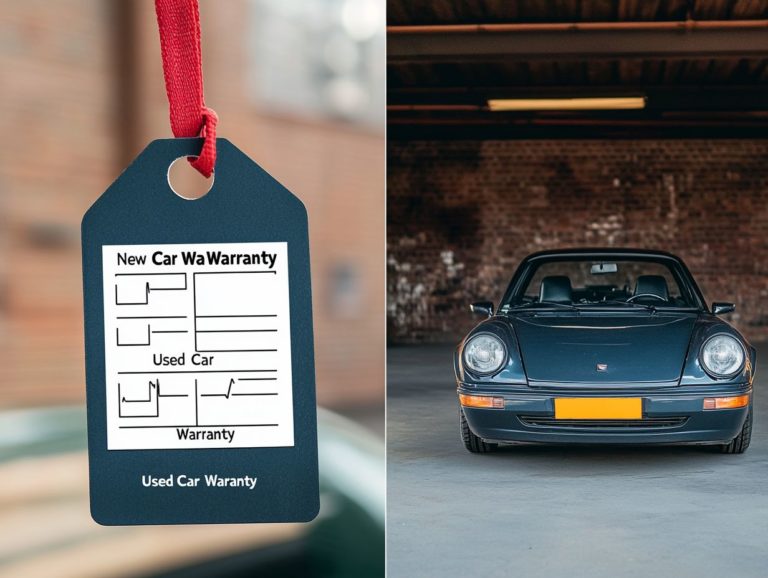Understanding Warranty Coverage for Hybrid Cars
Hybrid cars are gaining popularity for their impressive fuel efficiency and eco-friendly advantages. Comprehending warranty coverage is vital for anyone considering a purchase.
Let s dive into the exciting world of hybrid cars, exploring what defines them, the various types available, and the significance of warranty coverage. You’ll discover details about manufacturer and extended warranties, including which components are typically covered and how to effectively navigate warranty terms.
You ll also find essential tips for maintaining your warranty to ensure comprehensive protection. Immerse yourself in this information to make informed decisions about your hybrid vehicle!
Contents
- Key Takeaways:
- What is a Hybrid Car?
- Importance of Warranty Coverage for Hybrid Cars
- Types of Warranty Coverage for Hybrid Cars
- What is Covered in a Hybrid Car Warranty?
- Understanding Warranty Terms and Conditions
- Tips for Maintaining Warranty Coverage
- Frequently Asked Questions
- What is a hybrid car and how does it differ from a traditional gasoline car?
- What is warranty coverage for hybrid cars?
- What does the warranty typically cover for hybrid cars?
- How long does the warranty last for hybrid cars?
- Are there any limitations to the warranty coverage for hybrid cars?
- What happens if a warranty repair is needed for my hybrid car?
Key Takeaways:
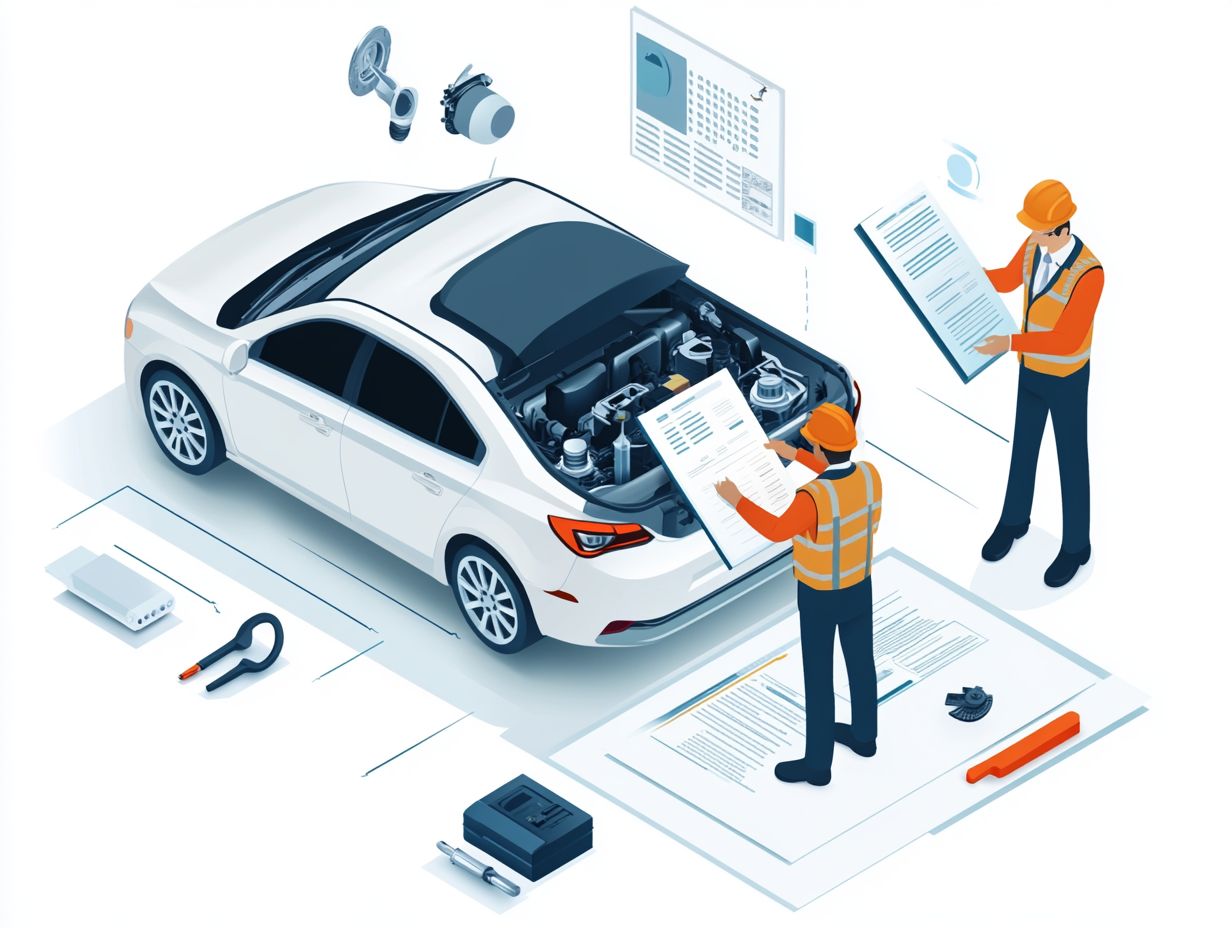
- Hybrid cars combine a traditional gasoline engine with an electric motor to increase fuel efficiency and reduce emissions.
- Warranty coverage is crucial as it protects against unexpected repairs and helps maintain the car’s value.
- There are two main types of warranty coverage: manufacturer’s warranty and extended warranty.
- Components related to the hybrid system are typically covered under the warranty.
- Carefully reading and understanding warranty terms is important to avoid surprises or misunderstandings.
- Regular maintenance and following best practices, such as using recommended parts and fluids, can help ensure warranty coverage.
What is a Hybrid Car?
A hybrid car seamlessly blends conventional internal combustion engines with electric propulsion, using hybrid technology to elevate fuel economy and reduce emissions. This innovation marks a significant milestone in the U.S. vehicle market.
These vehicles typically incorporate hybrid batteries that store energy produced by the engine, along with a system that captures energy when you slow down to recycle it.
Leading manufacturers, such as Ford Motor Company and Toyota, are at the forefront of this technology, offering a range of models tailored to meet diverse consumer needs and preferences.
Definition and Types of Hybrid Cars
Hybrid cars leverage two or more power sources, usually merging a traditional internal combustion engine with an electric motor. This clever combination enhances fuel efficiency and reduces emissions, making them attractive for eco-conscious drivers.
These innovative vehicles mainly fall into two categories: conventional hybrids and plug-in hybrids. Conventional hybrids use a smaller battery that recharges while you’re driving, thanks to regenerative braking and the internal combustion engine. This setup delivers impressive fuel economy without the hassle of needing an external charging source.
Plug-in hybrids, on the other hand, feature larger batteries that can be charged through standard electrical outlets, allowing for a greater electric-only range before switching to gasoline. Understanding the differences in their charging systems is crucial, as it impacts battery life and efficiency metrics insights essential for anyone keen on navigating the evolving landscape of hybrid vehicles.
Importance of Warranty Coverage for Hybrid Cars
Warranty coverage for hybrid cars is essential, providing you with peace of mind while helping you manage potentially hefty replacement costs of critical components such as hybrid batteries and control modules, which can be quite expensive to replace.
Why is Warranty Coverage Important?
Warranty coverage is especially important for hybrid cars due to the high replacement costs of battery components and the risk of premature battery wear. Understanding the scope of car warranty coverage can help you make informed decisions regarding your vehicle.
Understanding the financial implications of battery failure is crucial; these costs can be significant. A comprehensive warranty can provide invaluable peace of mind, helping you avoid unexpected repair bills that could impact your budget.
Warranty terms vary widely between hybrid vehicles and traditional cars. Hybrids often come with longer warranty periods for battery coverage. It’s essential to carefully review your warranty options.
Enhanced protection secures your vehicle’s functionality and helps preserve its resale value in a competitive market.
Types of Warranty Coverage for Hybrid Cars
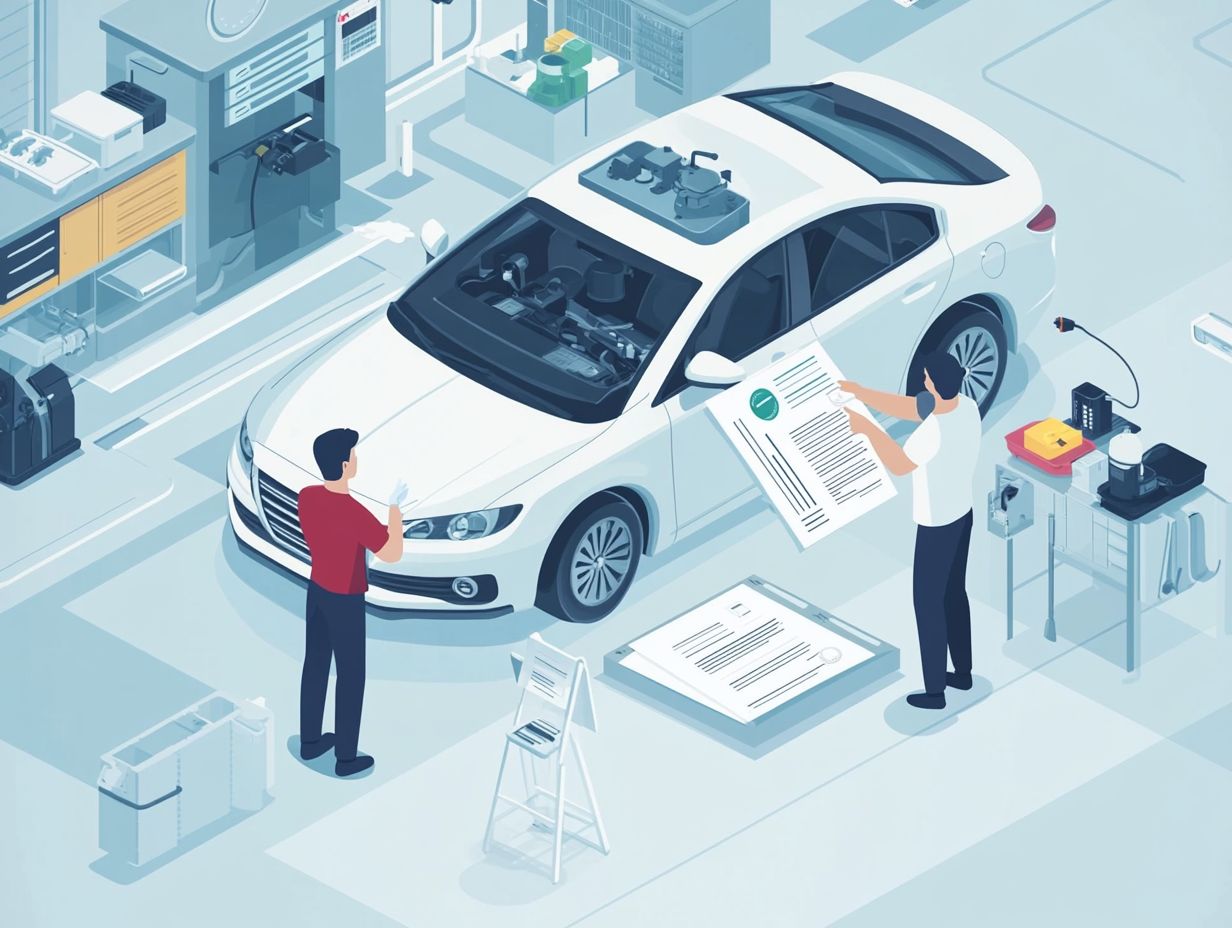
You have two main options for warranty coverage on hybrid cars. The manufacturer’s warranty covers defects and performance issues, ensuring you’re protected from the start.
Extended warranties offer an extra layer of protection that goes beyond the factory warranty, providing peace of mind for the long term.
Manufacturer’s Warranty
The manufacturer’s warranty, often called the factory warranty, covers a specific period or mileage. It protects key components, including your vehicle’s powertrain.
For hybrid cars, this warranty typically covers essential parts like the electric motor, battery, and transmission. This ensures you won’t face unexpected repair costs during the critical early years of ownership.
A solid warranty offers peace of mind by covering defects in materials and workmanship. You can enjoy your driving experience without the worry of financial strain.
Extended Warranty
An extended warranty provides additional protection for your hybrid vehicle, with coverage options tailored to your needs.
This warranty is especially beneficial for unique hybrid components, such as complex battery systems and advanced technologies that may require specialized repairs. With an extended warranty, you can feel secure knowing you have financial support for unexpected mechanical failures.
Many providers offer flexible warranty terms, allowing you to customize coverage based on your preferences and budget. Options may include:
- Roadside assistance
- Rental car reimbursement
This adds a layer of security, making your investment feel even safer!
What is Covered in a Hybrid Car Warranty?
A hybrid car warranty typically covers a range of critical components, including the hybrid battery, control module, inverter, and converter. This comprehensive coverage keeps your vehicle operational throughout its lifespan, providing peace of mind on the road.
Evaluate your warranty options today to ensure you have the right coverage for your hybrid vehicle!
Components and Parts Covered
Key components included in hybrid car warranties often encompass hybrid batteries, the battery control module, inverter, and converter each vital for the effective operation of your vehicle s hybrid technology.
These components function in perfect harmony to elevate both performance and fuel efficiency. The hybrid battery captures energy generated from both the electric and gasoline engines, supplying power for acceleration while minimizing your dependence on fossil fuels.
The battery control module optimizes battery performance by managing how the battery charges and uses power, effectively extending its lifespan. Meanwhile, the inverter converts the direct current from the battery into alternating current, which powers the electric motor.
The converter ensures energy efficiency by adjusting the voltage to suit different driving conditions. Together, these elements enhance the durability of hybrid vehicles and improve their operational efficiency, making them an intelligent choice for environmentally conscious drivers.
Understanding Warranty Terms and Conditions
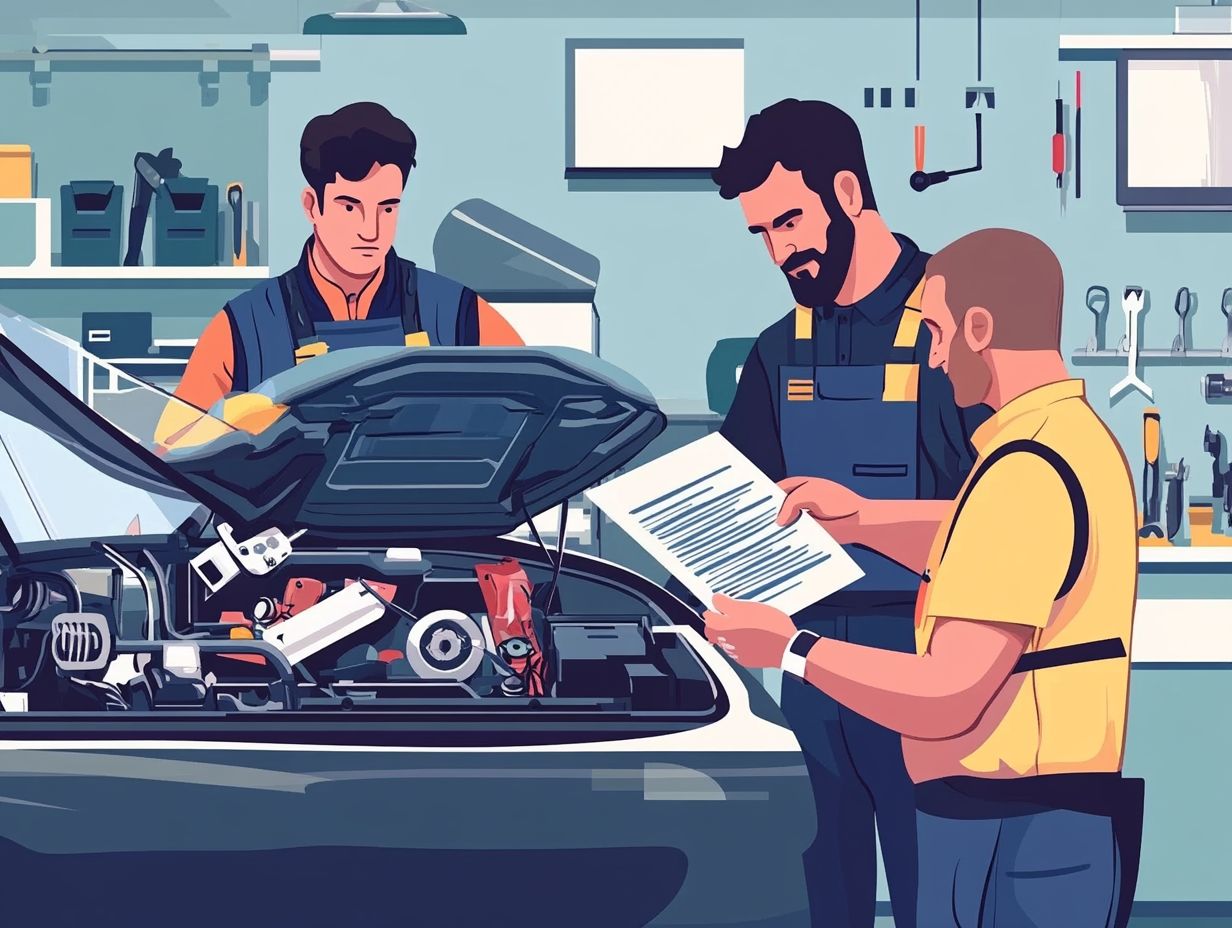
Understanding the warranty terms and conditions is crucial for you as a hybrid car owner. This knowledge explains the coverage limits, exclusions, and limitations that could impact your ability to make claims on warranty services.
Being well-informed enables you to navigate any potential issues with confidence and clarity.
Common Exclusions and Limitations
Common warranty exclusions often include issues stemming from improper vehicle storage, battery lifespan, and neglecting routine maintenance, which can lead to the denial of your warranty claims.
For hybrid vehicles, adhering to the manufacturer’s recommended service schedule is paramount. Skipping routine check-ups, overlooking fluid replacements, or attempting DIY repairs without the necessary expertise could seriously jeopardize your warranty protections.
Imagine if your engine starts to struggle due to ignored oil changes, or your battery is damaged from inadequate storage conditions suddenly, you might face hefty repair bills with no coverage in sight.
It’s also important to tread carefully with aftermarket modifications; certain changes could void your warranty entirely. This highlights the critical need to comply with all warranty terms and conditions, ensuring your vehicle’s integrity and your investment remain protected.
Tips for Maintaining Warranty Coverage
To maintain warranty coverage for your hybrid car, it s essential to follow best practices in vehicle maintenance. This means ensuring that you meet all service requirements as outlined by the manufacturer.
By doing so, you not only safeguard your warranty but also keep your vehicle in optimal condition.
Best Practices for Maintaining Warranty Coverage
Key best practices for maintaining your warranty coverage include keeping meticulous service records, following the manufacturer’s maintenance schedule, and promptly addressing any issues that arise.
Following these practices is essential, as they protect your investment and ensure that any potential claims are processed seamlessly and efficiently. Documenting all maintenance activities creates a comprehensive history that supports warranty compliance.
Regularly adhering to the manufacturer’s recommended maintenance schedule allows you to identify and resolve minor issues before they escalate into costly repairs.
The importance of timely interventions cannot be overstated; delaying repairs might lead to significant damage, potentially voiding your warranty. Ultimately, diligent record-keeping and proactive vehicle care enhance both the longevity and reliability of your vehicle, safeguarding your rights as an owner.
Frequently Asked Questions
Don t risk your warranty! Stay proactive with maintenance to ensure your car remains in top shape. Check your warranty details or consult a professional for maintenance.
What is a hybrid car and how does it differ from a traditional gasoline car?
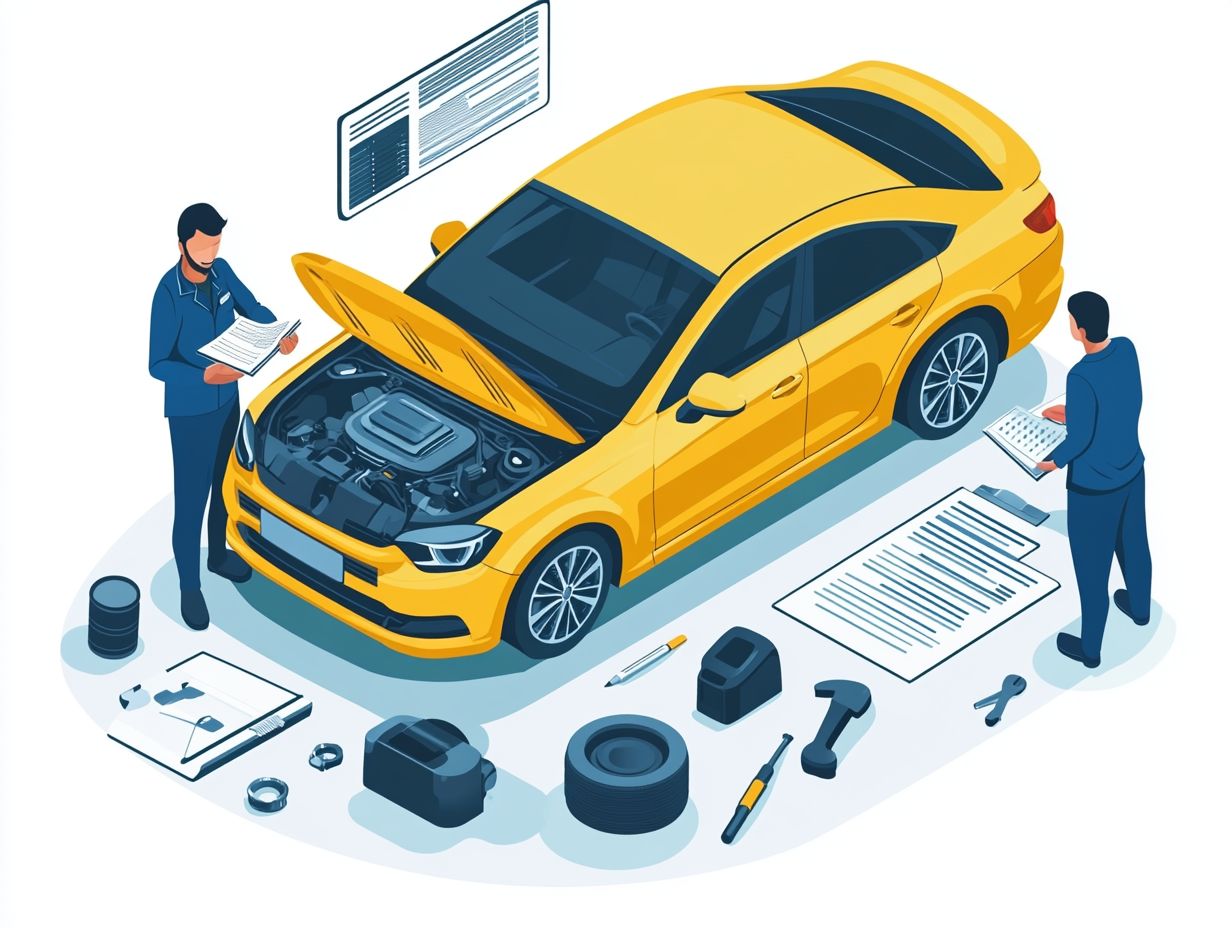
A hybrid car combines a gasoline engine with an electric motor. This combination reduces fuel consumption and emissions, making it friendlier to the environment.
What is warranty coverage for hybrid cars?
Warranty coverage is a promise from the manufacturer to fix problems within a specific time or mileage. It gives car owners peace of mind and can save money on repairs.
What does the warranty typically cover for hybrid cars?
The warranty usually covers the electric motor, battery, and other key parts of the hybrid system. It may also include the transmission and braking system.
How long does the warranty last for hybrid cars?
This varies by manufacturer, typically lasting 3 to 8 years or 60,000 to 100,000 miles. Some manufacturers offer extended warranties for an extra cost.
Are there any limitations to the warranty coverage for hybrid cars?
Yes, limitations may include normal wear and tear or damage from accidents. Always read the warranty terms for specific details.
What happens if a warranty repair is needed for my hybrid car?
If you need a warranty repair, take your car to an authorized dealership. The manufacturer covers the cost, provided it’s within the warranty period.

